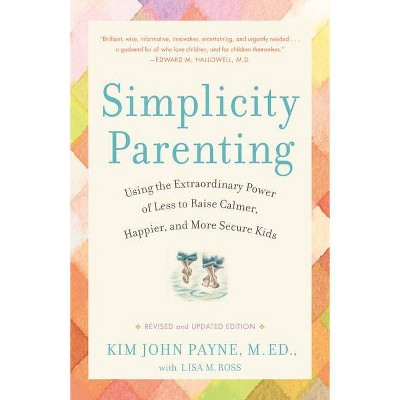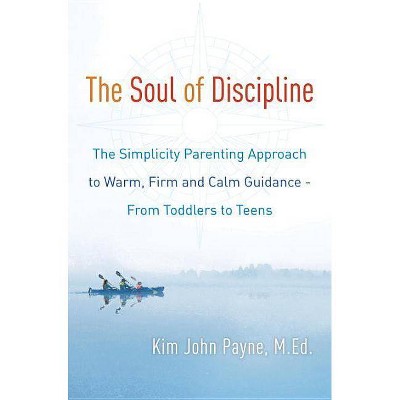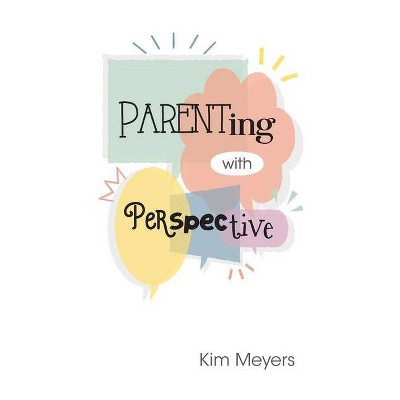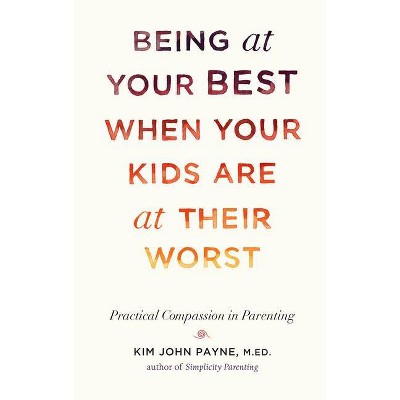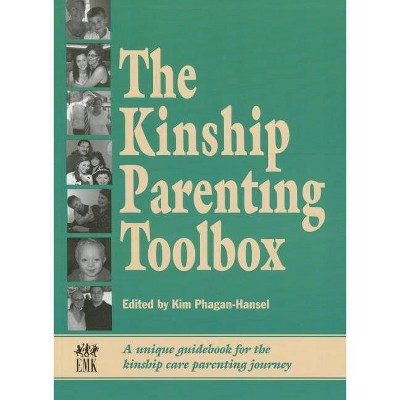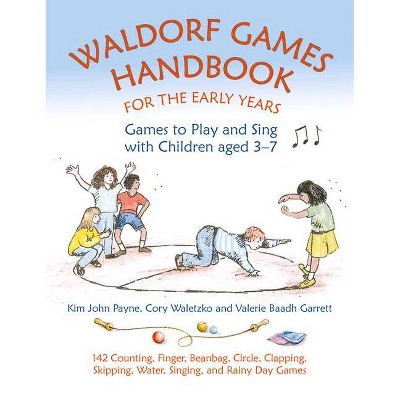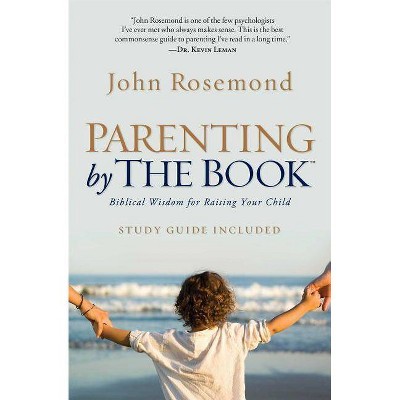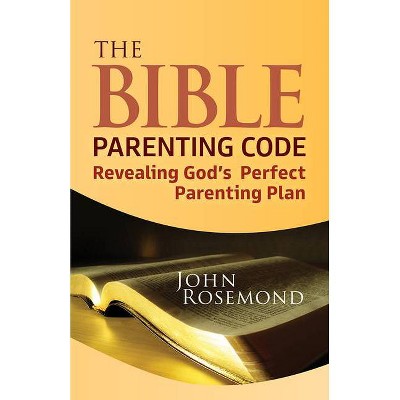Simplicity Parenting - by Kim John Payne (Paperback)
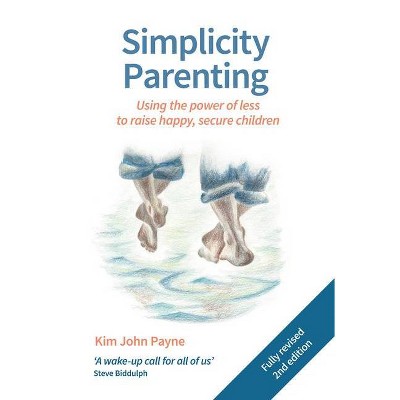
Similar Products
Products of same category from the store
AllProduct info
<p/><br></br><p><b> Book Synopsis </b></p></br></br><p>As the pace of life accelerates, with too much stuff and too many choices and too little time, children are feeling the pressure. This book is for parents who want to slow down, but who don't know how and for families with too much stuff and too many choices. The author presents four simple steps for de-cluttering, quieting, and soothing family dynamics so that children can thrive at school, get along with peers, and nurture wellbeing.</p> <p>Using the extraordinary power of less, Kim John Payne, one of the world's leading Rudolf Steiner/Waldorf educators, offers novel ways to help children feel calmer, happier, and more secure. He asserts that many of today's child behavior problems come from TMS--Too Much Stuff.</p> <p>"All children are quirky, that's what makes them lovable, who they are. But these cumulative stresses slide those quirks along the behaviour spectrum into disorder-- the dreaded 'Ds.' Simplicity parenting is a way to slide the child back down the spectrum. They go from having a label back to being lovable and quirky."</p> <p>This is a new and revised UK edition of the #1 US Bestseller, <i>Simplicity Parenting: Using the Extraordinary Power of Less to Raise Calmer, Happier, and More Secure Kids</i> (2009).</p> <p><b>C O N T E N T S</b> </p> <p>Foreword by Steve Biddulph<br />Introduction</p> <p>1. Why Simplify?<br />2. Soul Fever<br />3. Environment<br />4. Rhythm<br />5. Schedules<br />6. Filtering out the Adult World</p> <p>Epilogue<br />Afterword<br />Acknowledgments</p> <p>Appendices: <br />1. Simplicity Parenting Book Group Study Guide<br />2. SP Program</p> <p>Notes and References<br />Select Bibliography<br />Index</p><p/><br></br><p><b> Review Quotes </b></p></br></br><br><p>I have often wondered if as a nation we treat our dogs somewhat better than we treat our children. Everyone knows that dogs need regular exercise, time to run and play freely outside. The same is true for children. Yet when walking in my neighborhood wood or on the local moor, passersby are nearly always accompanied by dogs, rarely children. This phenomenon is a small but significant example of a much wider issue. Our social structures and cultural norms not only do little to encourage opportunities for outdoor play, they provide little or no protection for what ought to be totally sacred: childhood itself.</p> <p>Kim John Payne argues in his book <i>Simplicity Parenting </i>that the wealthy industrialized West is an increasingly hostile place for children and young people, albeit in far subtler ways than in other parts of the world. The effects are not necessarily subtle. If you are familiar with educational debates you have probably heard a great deal in recent years about anxiety, stress levels, attention deficits, challenging behavior, depression and even self-harming in young people. Payne expresses the underlying problem in a particularly striking way: many children in the United States and United Kingdom are suffering from a form of post-traumatic stress disorder (PTSD). Not as a result of a single traumatic event, but a gradual buildup of stresses and strains as they are rushed through every aspect of learning and development, with no time to simply be, to rest, to process or to experience in their own natural ways. Education is entirely adult-driven, co-opted by commercial and political interests, and parents are literally buying into an approach to learning that is wholly dictated by people whose expertise lies in cultivating financial profits, not well-rounded human beings.</p> <p>Building on his work with children in Asian refugee camps, Payne describes how youngsters are showing signs of a "cumulative stress reaction" to immersion in the "media-rich, multitasking, complex, information overloaded, time pressured" existence we now call normal daily life. This is manifesting in all varieties of health problems. We have all experienced how periods of high tension can dramatically alter our physical or mental state. It can also alter our personality, morphing us in mere seconds from our ordinary selves to our worst selves, with sudden outbursts of negative emotion or behavior. Thankfully these moments are usually short-lived and as we return to calm, we regain a sense of self control. Payne asserts that in children if even moderate levels of excitement or stimulation become a permanent feature of daily life, never counterbalanced by interludes of peacefulness, predictability and even boredom, stress can act as the catalyst, which turns what might have been only a quirk or tendency into one of the dreaded "disorders."</p> <p>Seen in this light, the solution becomes obvious. First and foremost, we must reduce the stress in the daily life and environment of our children. This can be done by a process of "simplification." He describes this process in terms of four areas that can be dealt with in turn: the environment, rhythm, schedules and filtering out the adult world. As with any transformation the first work is inner work. He advises parents to attempt to recover their dreams, to reacquaint themselves with ideals of family life held dear before reality and its inevitable rush and clutter took over. This imaginative picture can be used as inspiration for change. From there, one can begin with what is do-able and capitalize on success in small steps to progress to the bigger, more important ones.</p> <p>Modifying one's physical environment is the most tangible and perhaps manageable step in the process of simplification. When it comes to stuff, the first order of business is quite simply to get rid of it. Or at least as much of it as possible. While acknowledging the pressures that are pushing them in exactly the opposite direction, Payne urges parents to drastically reduce the amount of possessions their children have or have access to. Whether with toys, books, clothes or food, decreasing amount and variety in a child's surroundings can help to instill the lifelong lesson that it is "relationships, not purchases, which sustain us emotionally." After all, "nothing in the middle of a pile can be truly cherished." With fewer choices and fewer distractions children have both physical and emotional space in which to develop their powers of attention, concentration and imagination, a greater depth of engagement with and an appreciation for what they have.</p> <p>By gently turning our family's attention away from the temptations of passive entertainment and instant gratification and toward more hard-won yet meaningful experiences, we encourage qualities and capacities that will be of both immediate and lasting benefit. These qualities can be further strengthened by increasing rhythm in daily life. Payne points out that any regular activity, event or chore can be made more rhythmical. The certainty of rhythms and rituals create "islands of consistency and security" which punctuate the day and ground the child in space and time and within the family world. They are like the "place set at the table. An unquestioned invitation to participate, connect and belong."</p> <p>The same principles apply to how we organize and fill our children's time. As with too many toys, too many scheduled activities, particularly ones with fixed rules, can stifle a child's ability to be creative, independent and self-motivated. We have become so busy "enriching" our children we have forgotten to allow them free, unstructured time in which to discover what they really love to do. Here again, balance is the key concept. It is not the particular activities themselves which cause problems, but pursuing too many at once, too intensely, or at an age which is not developmentally appropriate. Sports, for instance, can be a wonderful education in teamwork, cooperation, leadership, skill and self-discipline. But if imposed too early, organized sports can lead to burnout and young people can be robbed of pursuits that at a later stage would have been immensely rewarding. When it comes to our children's schedules, then, we must pay attention to what, when and how much, remembering that as much as programmed events can be 'enriching' the spaces in between them can be equally so.</p> <p>In a chapter entitled "Filtering out the adult world" Payne discusses how worry, always a part of parenthood, seems in the last few decades to have come to define how parents relate to their children. Our "fears and concerns for our children have eclipsed our hopes for them, and our trust." One of the key contributors to this is over-exposure to media and the hyper-sensationalism of bad news. Anxiety sells, and it is being delivered, nicely packaged for maximum impact, right into the heart of our homes and bursting out of multiple screens all clamoring for our attention. The diet of fear and exaggerated risk to which so many of us have become addicted is compromising our sense of perspective, and that in turn is polluting the way our children see the world. "Too much information doesn't 'prepare' a child for a complicated world; it paralyses them." Much has been written about the harmful effects of television media in recent years and Payne makes as convincing a case as any of the merits of "kicking out" that "black hole of a house guest." Unrestricted television and other forms of screen media work against simplification at every turn.</p> <p>This fully revised edition of a book, which a decade ago inspired a movement is very accessible and brimming with valuable insights. Whether dipped into and out of as a reference or read as a comprehensive step-by-step guide, it will appeal to parents who are uneasy about the status quo but need practical suggestions for change. Likewise, it will appeal to those dealing with specific problem behaviors but seeking a different set of answers from the conventional, frequently medication-based approach to child health. Payne's observations and recommendations are made with great empathy and respect for the challenges parents face, as well as their motivations. Harnessing 'the power of less' is certainly an important step in reattuning to the true needs of children today, to seeing the world from their perspective and ensuring that perspective is allowed to matter.</p>--Maria Lyon, NewView, spring 2019<br>
Price History
Price Archive shows prices from various stores, lets you see history and find the cheapest. There is no actual sale on the website. For all support, inquiry and suggestion messages communication@pricearchive.us
